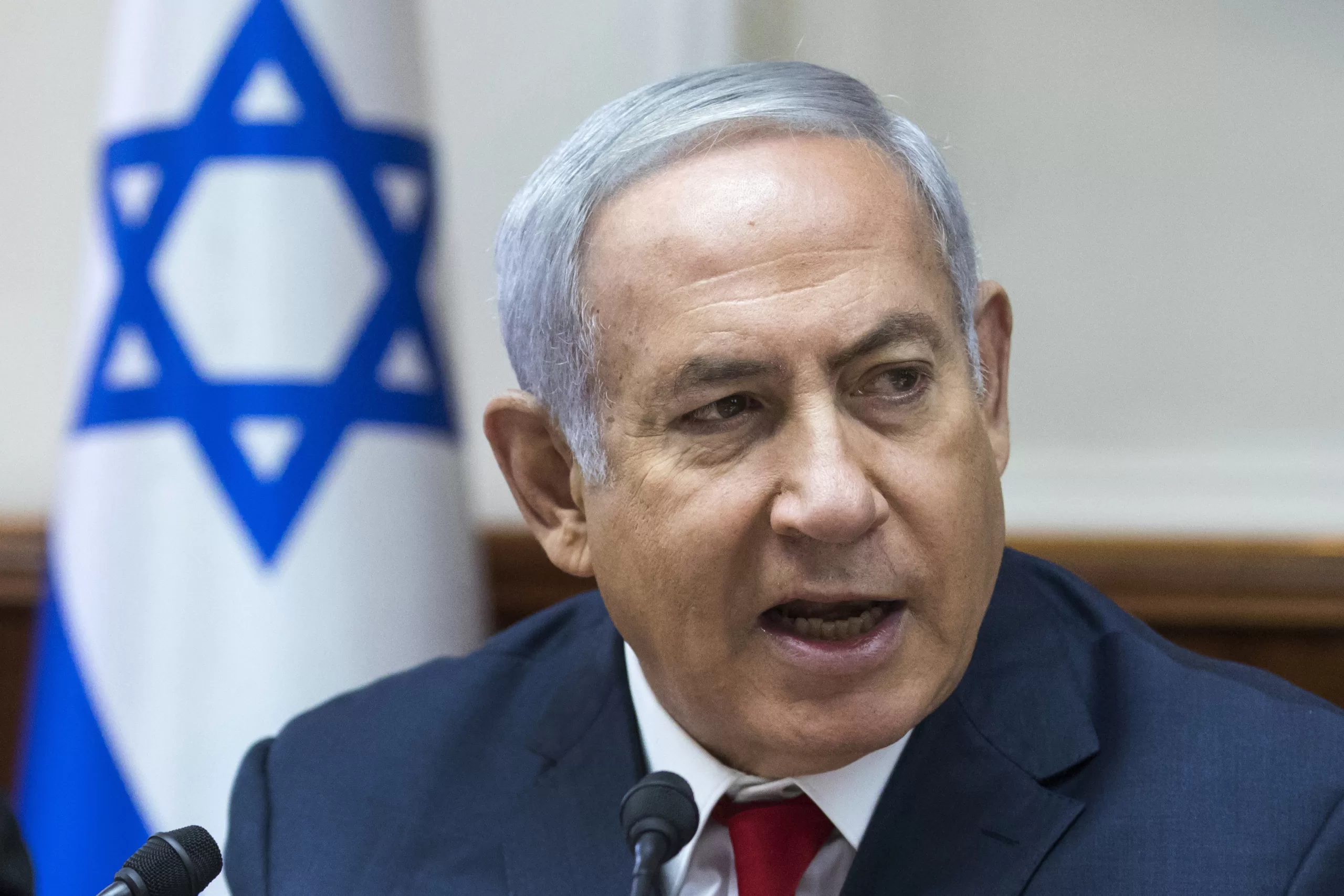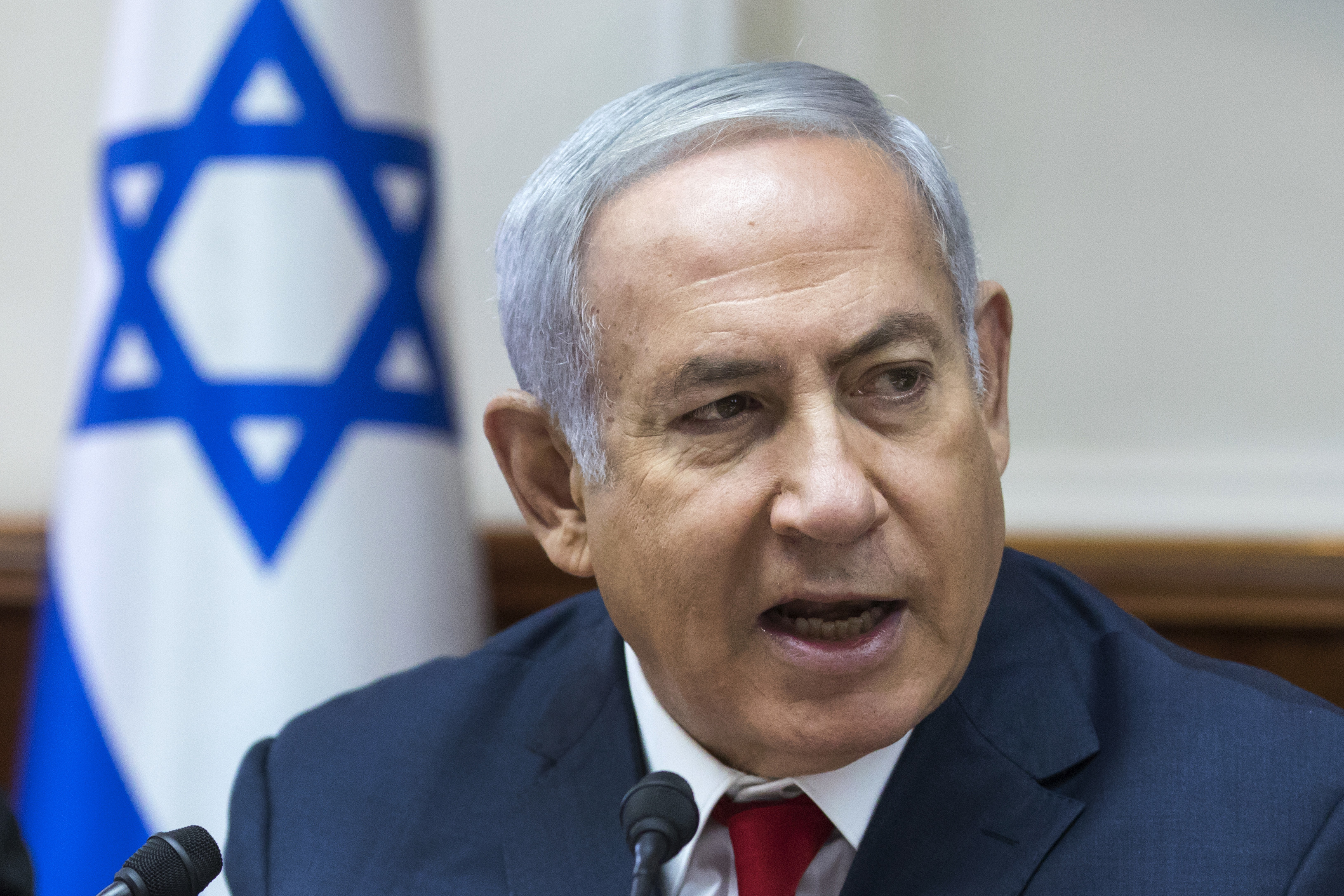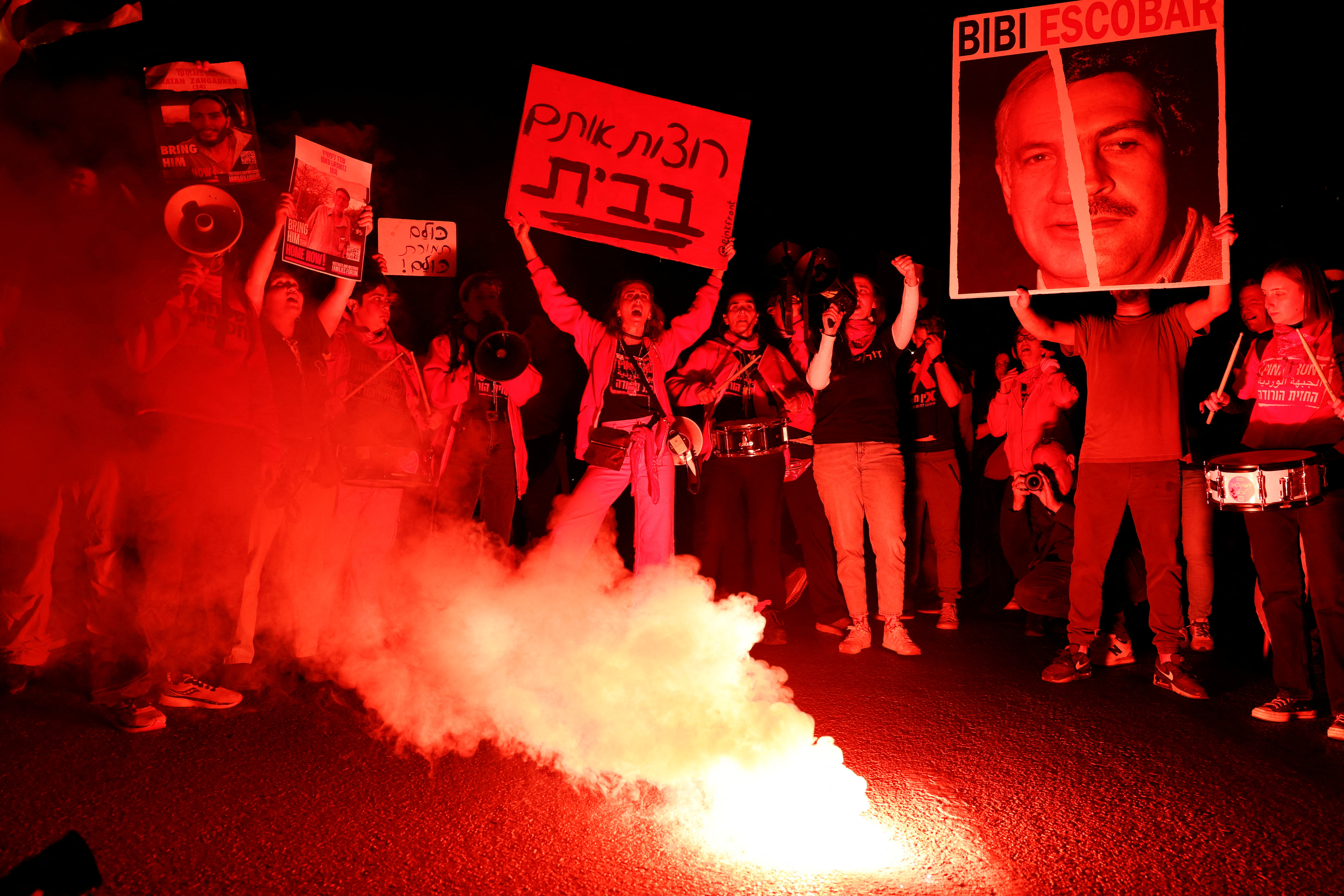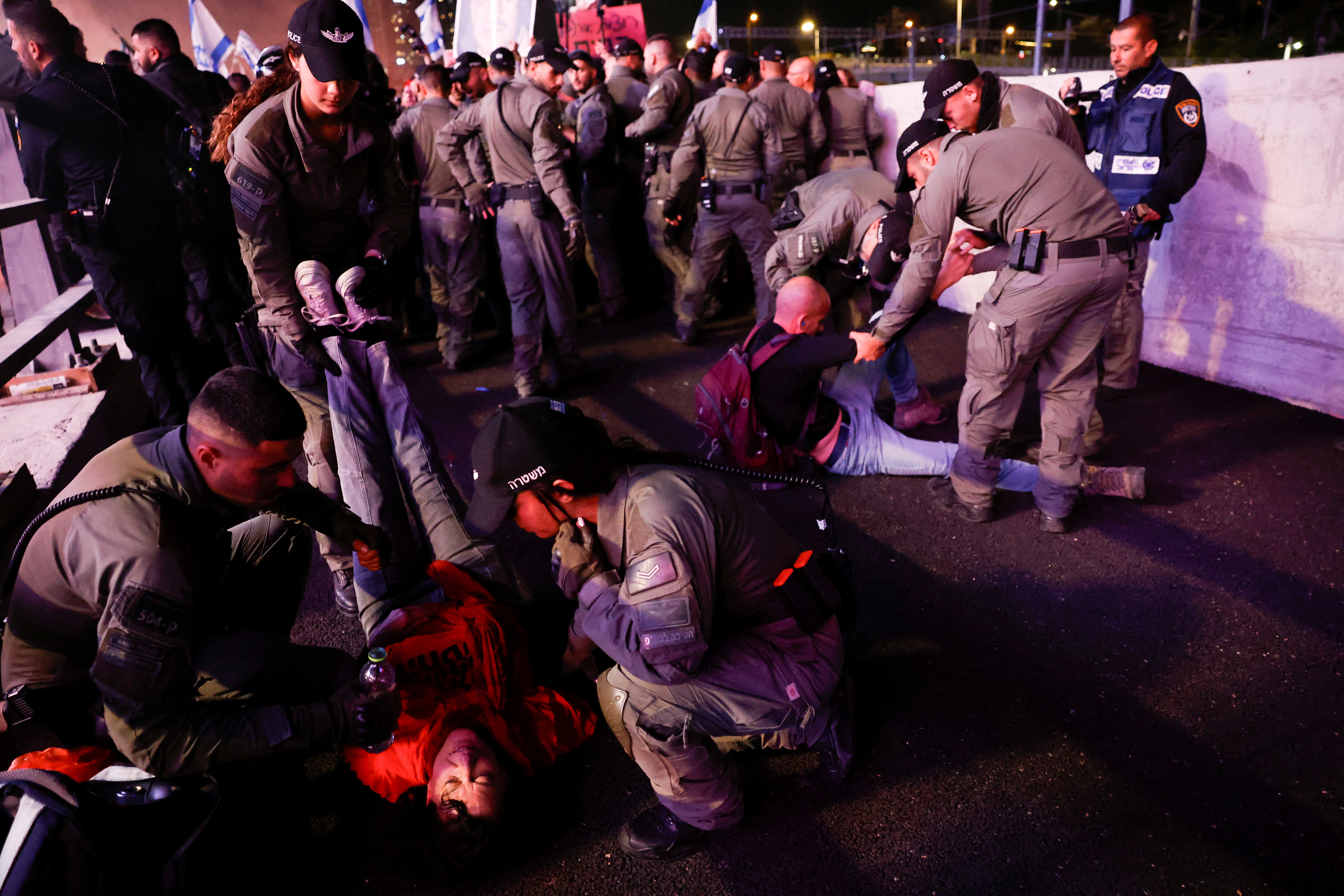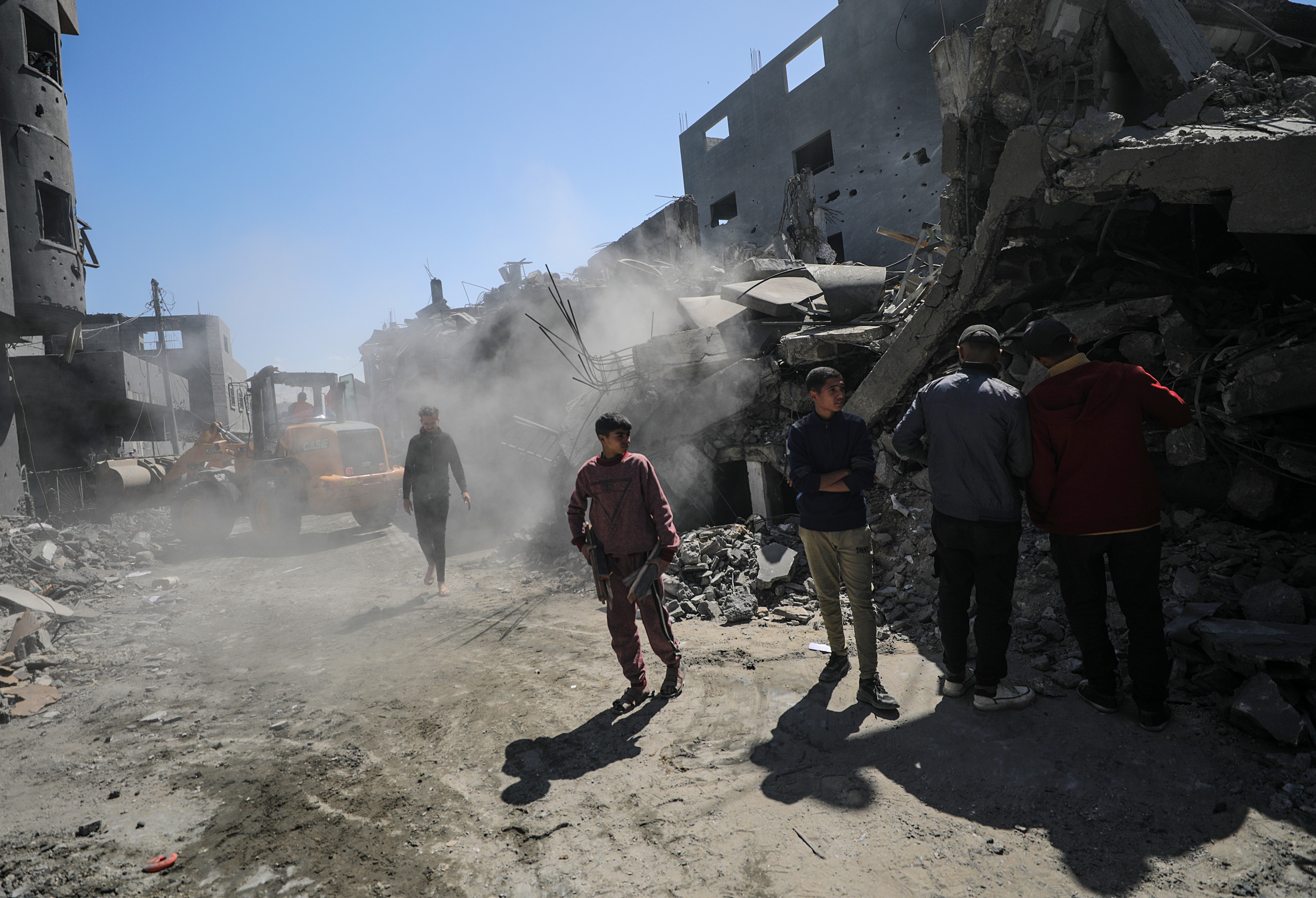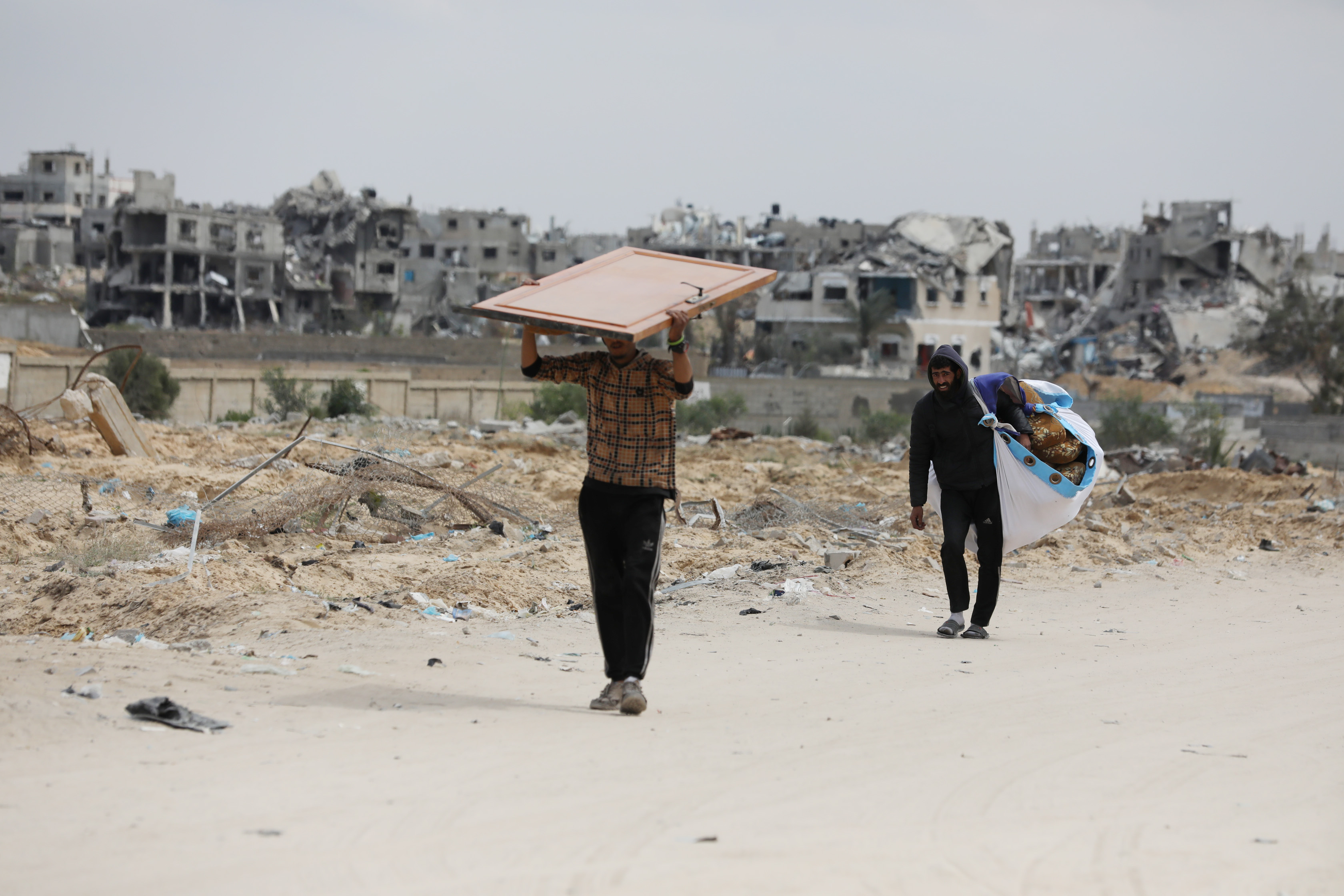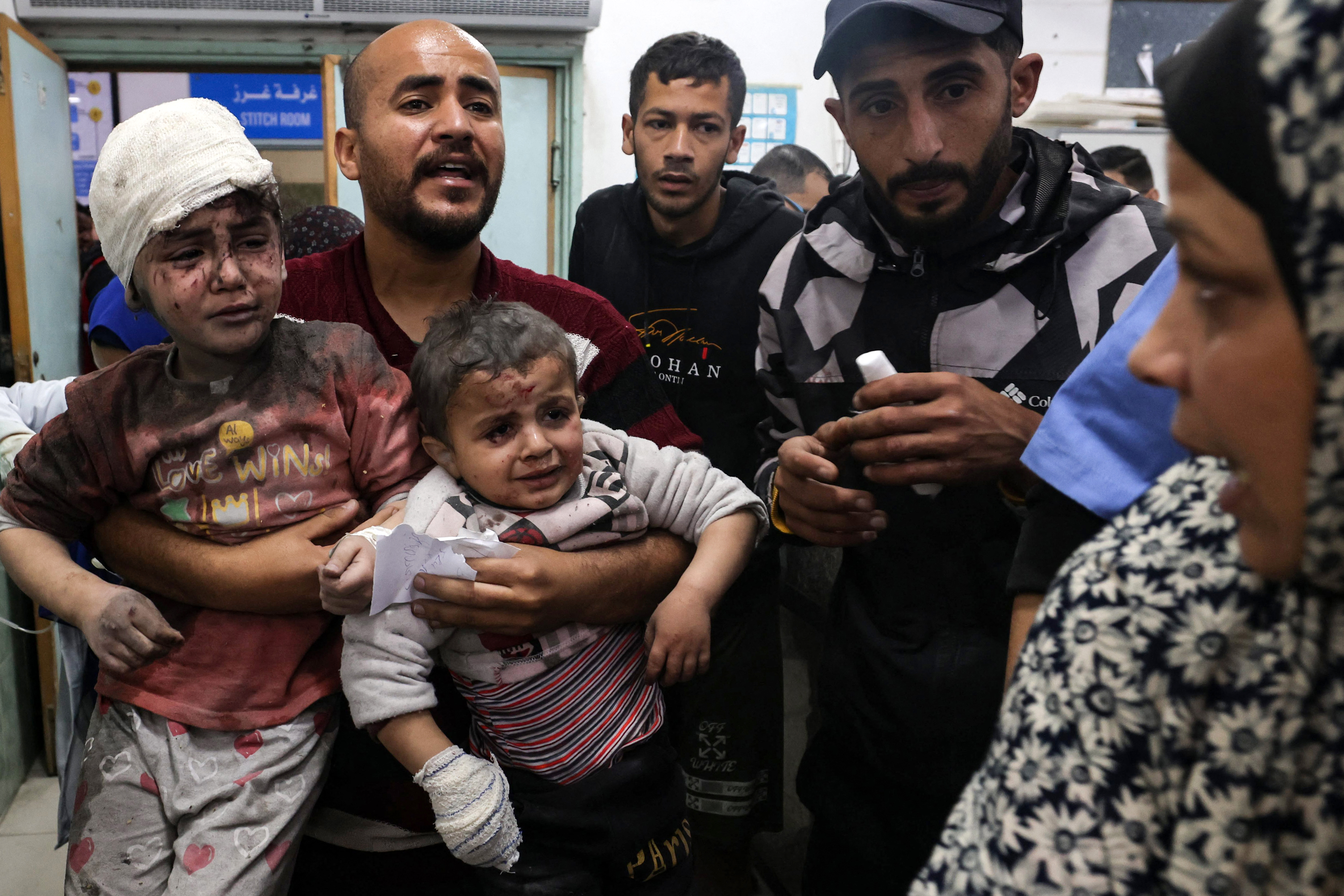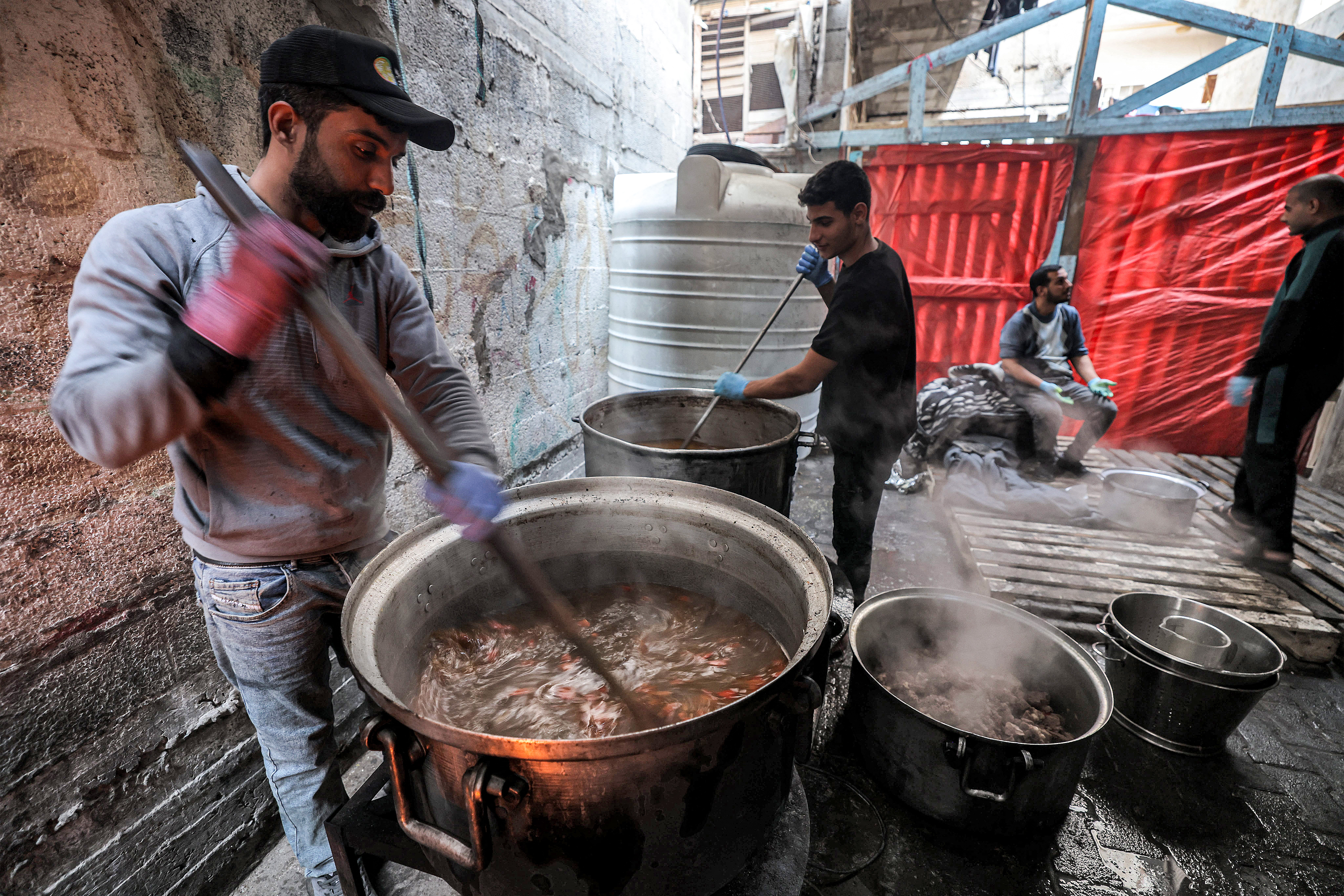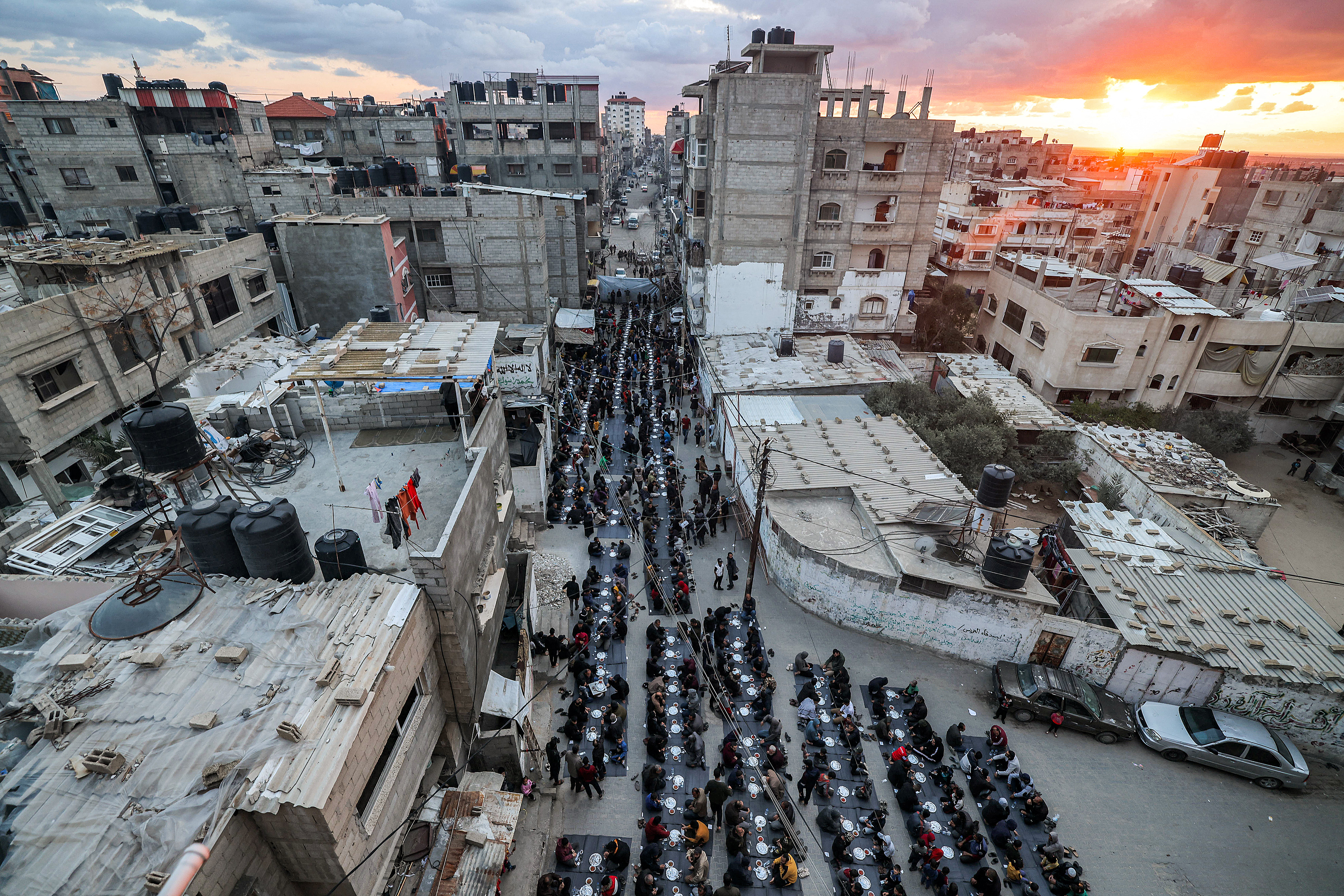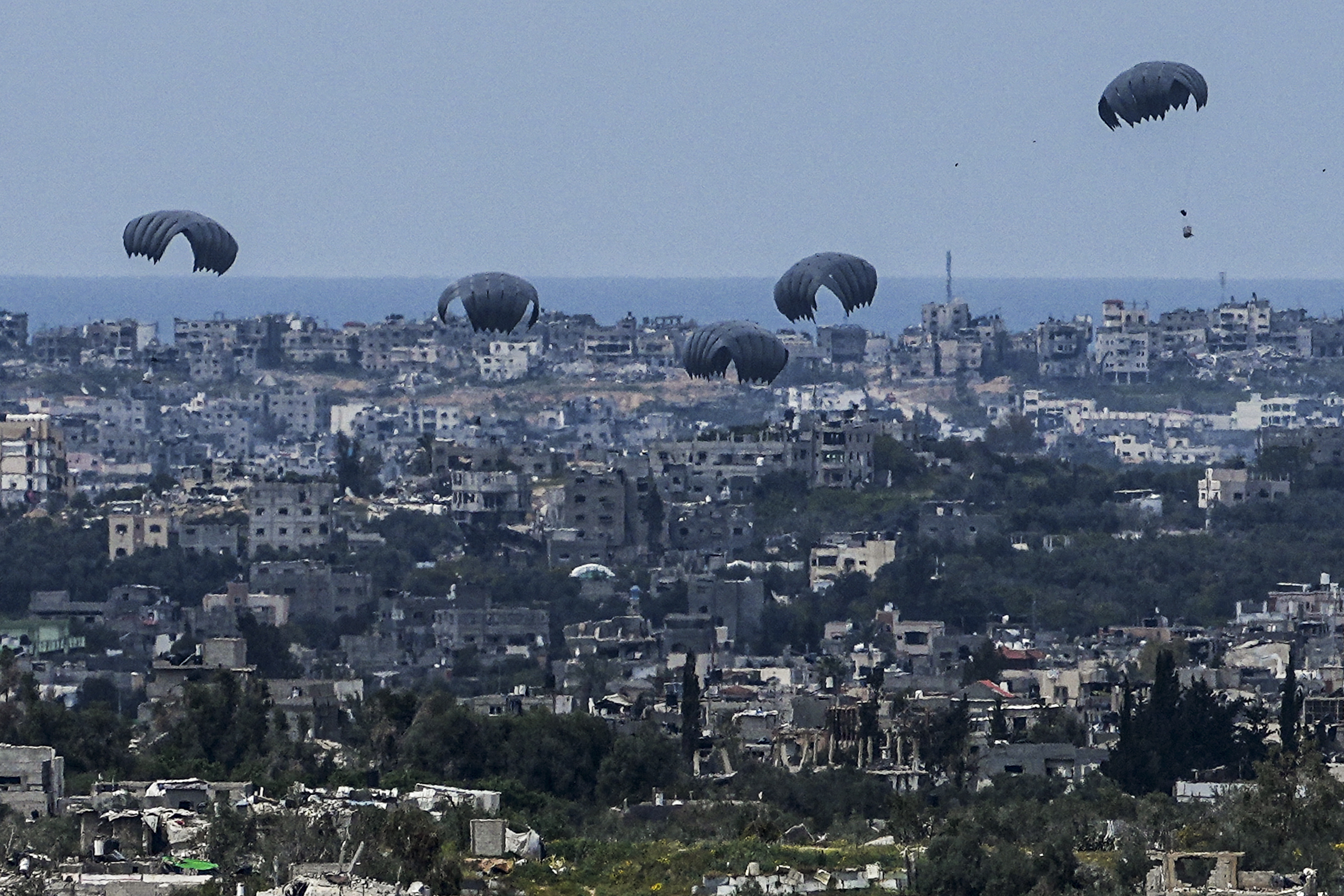Several Israeli media outlets have alleged that dozens of those released are criminals serving life sentences for terrorist attacks.
After describing any exchange as “unrealistic” a few weeks prior, it is thought that Israeli negotiators in Qatar have signed off on an American compromise.
It is still unclear exactly how many prisoners will be released by Israel, with some Israeli media outlets suggesting that the number is closer to 700.
Alongside the prisoner exchange, it is thought that Israel is now willing to discuss allowing Palestinian refugees to return to the northern half of the Gaza Strip.
A long list of currently unspecified conditions are suspected to be attached to civilians returning to the north of the Strip.
read more on israel-hamas war
For example, it is unlikely that men will be allowed to return.
Israel has also maintained that they will not, under any circumstances, be agreeing to any deal that sees the withdrawal of the IDF from Gaza.
The leaders of Hamas are expected to take up to three days to accept or alter the proposal.
Previous talks between Hamas and Israel have failed to materialise due to Israel’s staunch stance on continuing the war to eradicate Hamas.
Senior Hamas official Sami Abu Zuhri has previously said that any deal they accept should include conditions for an end to the war.
Abu Zuhri said: “What America and the Occupation (Israel) want is to regain the captives without a commitment to end the aggression, which means the resumption of war, killing and destruction, and we can’t accept that.”
In a speech posted to his X account, Israeli Prime Minister Benjamin Netanyahu said that Israel will not end the war until he achieves his objective.
He said: “We are not willing to pay any price, certainly not the delusional cost that Hamas demands of us, which would mean defeat for the state of Israel.
“We are committed to continuing the war until all objectives are achieved, which include eradicating Hamas, releasing all hostages, and ensuring that Gaza no longer poses a threat to Israel.”
Netanyahu has faced mounting pressure for his attitude towards a ceasefire deal – with relatives of the hostages becoming increasingly concerned about his commitment to their release.
On March 23, thousands gathered in Tel Aviv and Jerusalem to protest against Netanyahu and his government for failing to secure a hostage deal.
Anti-government demonstrators lit bonfires outside ministers’ homes, some wore costumes of Netanyahu dressed in a prison jumpsuit, and at least 10 were arrested.
The two sides have been stuck in an endless cycle in which Israel has been demanding for the hostages to be released before a truce is called, while Hamas has been calling for a truce before the release of any hostages.
Al Akhbar, a Lebanese newspaper, reported that the original deal put forward by Hamas proposed a 42-day ceasefire, to be followed by a permanent one.
This was immediately dismissed by Israel as “absurd”.
But after Hamas dropped their demands for a permanent ceasefire in the proposal they submitted on March 15, talks resumed.
Meanwhile, Israel has continued to indicate their plans to begin a ground offensive into Rafah – the last remaining shelter for Palestinian refugees in Gaza.
At least 1.4 million Gazans are believed to be in the border city, where they were forced to flee after Israel begun its offensive on October 7.
World leaders and aid organisations alike have warned that an invasion of Rafah would be an inevitable “bloodbath” of civilians and will only worsen the humanitarian crisis in the Gaza Strip.
UN World Health Organisation chief Tedros Adhanom Ghebreyesus has urged against such an attack “in the name of humanity”.
This month, the US has been forced to find ways around their ally in the Middle East, and has started sending aid via airdrops.
The US military carried out its first airdrop of humanitarian aid into Gaza on March 2 – with three C-130 planes delivering 35,000 meals.
One US official has said that they can’t wait on the Israelis to confirm a security arrangement for a port that will allow Gazans to receive deeply-needed humanitarian assistance.
The official said: “We’re not waiting on the Israelis.
“This is a moment for American leadership, and we are building a coalition of countries to address this urgent need.”
The official added that the UN and humanitarian organisations would also play a role – as they “understand the distribution of assistance within Gaza”.
